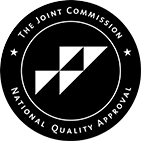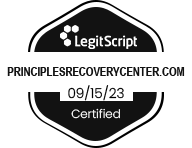
What to Pack For Rehab
Rehabilitation can be the start of a life-changing journey towards sobriety and improved mental health. It’s not a sign of weakness or failure to enter rehab. You are taking responsibility for yourself and your own health, as well as showing that you care enough about your relationships to invest time in healing from addiction.
When preparing to enter a rehabilitation facility, understanding the addiction treatment process and the resources and support available can significantly affect your experience.
A Rehab Packing List
When preparing for rehab, it is crucial to pack thoughtfully. Bringing the right items can help to ease the transition into treatment and create a sense of comfort within the new environment. Knowing what to bring to rehab can ensure comfort and support during the recovery process.
Here are some essential items to consider:
Pack comfortable, weather-appropriate clothing for your stay (and enough to last your entire stay). Opt for items like sweatpants, t-shirts, and pajamas that can be worn daily.
Bring personal hygiene essentials such as toothbrush, toothpaste, shampoo, conditioner, soap, and any other daily personal care items you use. When possible, bring items that are sealed and unopened, and avoid products containing alcohol or in aerosol form.
If you take prescriptions, make sure to bring an adequate supply along with any doctor’s notes about your medications. Any over the counter medications should be brought as well, with documentation or instructions about your usage if necessary.
Consider packing a journal to document your thoughts and feelings during your recovery journey.
Items for leisure reading can help pass the time and provide some relaxation.
It’s advisable to check with your specific rehab program for any particular requirements or restrictions they may have on the items you can bring.

Essential Documents
When preparing for rehab, having the right documents on hand is crucial for a smooth admissions process. These documents ensure that the rehab facility can provide the best possible care for your needs.
Make sure to bring a valid form of identification, such as a driver’s license, passport, or state-issued ID. This will be necessary for verifying your identity during the admission process.
Carry your insurance card and any policy details. This information is vital for the rehab center to process treatment coverage and handle any billing issues.
Pack a list of your current medications, including dosages and schedules, along with the original prescription bottles. This ensures that the rehab facility can manage your medications accurately, and may be necessary for the facility to distribute your medications.
Have a list of names, phone numbers, and addresses of your emergency contacts. This information is essential for the rehab center to reach out to your loved ones if needed.
If applicable, bring any legal documents such as custody papers, power of attorney, or court orders. These documents may be necessary for certain aspects of your treatment and care.
If there are any financial arrangements for your treatment, bring the relevant information to streamline the process.
Having these documents readily available will help streamline your admission process and ensure that the rehab facility can provide the best possible care tailored to your needs.
Personal Items for Comfort and Downtime
Bringing personal items to rehab can significantly enhance your comfort and help you feel more at ease during your stay. These items can provide a sense of familiarity and relaxation, making the transition to rehab smoother. Here are some personal items to consider packing:
Having a good book or an e-reader can be a great way to unwind and escape into a different world during your downtime.
If you enjoy photography, bringing a camera can be a therapeutic way to capture moments and express yourself creatively.
For those who find solace in drawing, a sketchbook and pencils can be a wonderful outlet for your emotions and creativity.
Consider bringing a hobby item, such as knitting or crocheting supplies. Engaging in a familiar hobby can provide comfort and a sense of normalcy.
Bringing photos of family and friends can provide emotional support and remind you of the people who care about you.
Before packing, check with the rehab facility for any specific restrictions on personal items. This will ensure that you bring items that are allowed and appropriate for the environment.
In addition to the essentials, consider packing a few items that can enhance your overall well-being during your time in rehab. A cozy blanket or a favorite pillow can provide a sense of home and security, making it easier to adjust to the new setting. Another thoughtful addition could be a set of headphones or earbuds, which can offer a personal escape through music or guided meditations. Many rehab facilities provide opportunities for mindfulness and relaxation techniques, and having your own audio equipment can enhance that experience.
Never Be Alone Again
Come Join Our Recovery Family
What You Shouldn’t Bring to Rehab
Alongside what to pack, knowing what to leave behind is equally important in ensuring a constructive rehab experience. Here are some items you should avoid bringing with you:
This seems obvious, but it is crucial to refrain from bringing any substances that could trigger a relapse or disrupt your treatment.
Jewelry, expensive electronics, or any item that could distract you or cause anxiety over potential theft should be left behind.
Limit the number of personal items that could become distractions, such as your smartphone or laptop.
Rehab centers typically have strict policies against outside food and drinks to ensure dietary control and proper health management.
It’s important to be mindful of how certain personal items may trigger you emotionally. For instance, photographs or mementos that remind you of past relationships may inadvertently lead to feelings of sadness or nostalgia, which can be counterproductive in a healing environment. Consider writing down your thoughts or feelings in a journal whenever these feelings emerge, so you can process the feelings in a constructive way without becoming mired in the past or unhelpful patterns of thought.
Bringing too much from the outside world can create stress and distraction, which can hinder the healing process. The focus should be on self-reflection, learning, and healing, undistracted by the external pressures and temptations. Your rehab center can provide support, so take some time to consider the best items for your journey.
When You Should Reach Out
To Your Treatment Programs
Entering rehab is a significant step, and knowing when to reach out for help during your stay can be vital. Communication with your rehab program is crucial for your well-being and overall success. You should consider reaching out in the following instances:
It’s better to make sure about a certain item than to bring it and have it confiscated (or encounter trouble with the administration).
If emotions or situations become overwhelming (including the act of entering rehab), don’t hesitate to inform the support staff. They are there to assist and help you develop healthy coping strategies.
Be proactive about your treatment plan. If something doesn’t sit well with you or doesn’t seem effective, talk to the people in charge.
If you feel physical or emotional withdrawal symptoms from detoxification (especially in the first 30 days of sobriety), notify the staff immediately so they can provide necessary assistance.
Addressing additional mental health conditions during rehabilitation is crucial. Inform your support team if you are struggling so that you can receive dual diagnosis treatment.
Establishing a rapport with your treatment team is vital. By communicating openly, you can navigate the challenges of rehab more effectively and gain insights that will support your growth and recovery.
Rehab is not just a place to get sober — it’s also an opportunity to learn about yourself and develop healthier coping mechanisms. If you notice any changes in your mental health, such as increased anxiety or depressive thoughts, it’s crucial to communicate these feelings to your treatment team. Your program may offer additional resources that can help you address these issues effectively. By being proactive about your mental well-being, you can take control of your own recovery and start building up a new life of sobriety.

Start Your Journey to Sobriety
At Principles Inpatient Rehab
Embarking on the journey of rehabilitation is not an easy path, but it is a worthy one. By focusing on preparing thoroughly, knowing what to bring and what to avoid, and communicating openly with your program, you set yourself on a better trajectory towards a clean and fulfilling life.
At Principles Recovery, we work to help you navigate through sobriety and build a new life that is uniquely yours. We help with all forms of addiction, and provide support to people with dual diagnosis needs. It’s all about healing the entire person and setting them up for success. Contact us today to learn more about our addiction treatment programs.
CREDENTIAL HIGHLIGHTS



